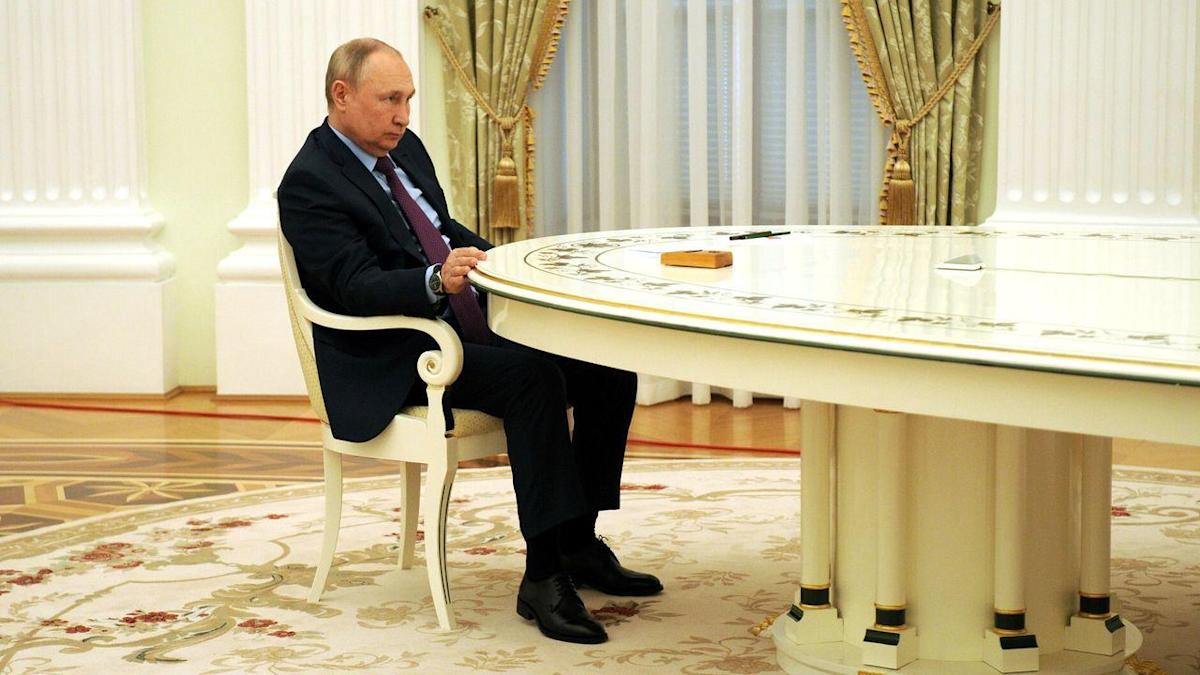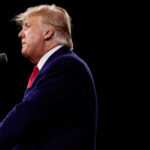
Russia’s invasion could destroy Ukraine’s sovereignty or Vladimir Putin’s regime. The outlines of a solution that leaves both intact are murkier.
The big picture: Putin has failed to force a quick capitulation from Kyiv. Now, even if he ultimately succeeds in removing Ukrainian President Volodymyr Zelensky, he’ll almost certainly face a prolonged, well-armed and motivated insurgency — a bad outcome for Russia and a worse one for Ukraine.
Stay on top of the latest market trends and economic insights with Axios Markets. Subscribe for free
-
Still, Putin’s demands and demeanor — denouncing Zelensky’s administration as “Nazis” and insisting on the full “demilitarization” of a country he is invading — are not those of man who’s ready to cut a deal.
-
Putin’s calculus will only change if he comes under sufficient pressure at home — due to battlefield casualties and economic hardship — that he feels continuing the war is more perilous for him than ending it, says Richard Haass, president of the Council on Foreign Relations.
Even in such a scenario, it’s unclear what exit Putin might be willing to take.
-
Putin’s other core demand, that Ukraine declare itself neutral and rule out future membership in NATO, has long been a nonstarter in Kyiv. It’s unclear whether battlefield realities could change that.
-
But having described his mission in Ukraine as one of “deNazification” (however absurd that may be), and spoken at length about Ukraine’s rightful place in Russia’s orbit, Putin would seem to have set the bar for success, at minimum, at the installation of a loyal government.
-
There, Putin does have an advantage, however. His control over Russian media is such that he might believe he can sell a modest outcome — a new status for the eastern “republics” and a promise on NATO, perhaps — as a victory, despite the high costs.
On the one hand: Rep. Adam Smith (D-Wash.) is among those arguing that the U.S. should set out the circumstances under which sanctions will be lifted in order to provide Putin with an off-ramp.
On the other: Radek Sikorski, the Polish chair of the European Parliament’s EU-U.S. delegation, told Axios that the goal of Western sanctions should now be regime change, calling Putin “a criminal who’s threatening us with nuclear war.”
Either way, the West’s focus right now should not be on diplomacy, Haass said. It should be increasing the costs on Putin.
Driving the news: In a second round of peace talks near the Ukraine-Belarus border Thursday, the Ukrainian and Russian delegations reached a tentative deal to organize humanitarian corridors for fleeing civilians, but made no progress toward ending the war.
-
Afterward, Zelensky challenged Putin to meet him one-on-one.
-
“It is not that I want to talk with Putin. I think I have to talk with Putin. The world has to talk with Putin because there are no other ways to stop this war,” he said.
Meanwhile, Putin held a 90-minute call with French President Emmanuel Macron in which he not only refused to budge on his demands but also promised to add more if Ukraine continued to fight.
Go deeper: The latest on the Russia-Ukraine crisis
Like this article? Get more from Axios and subscribe to Axios Markets for free.




